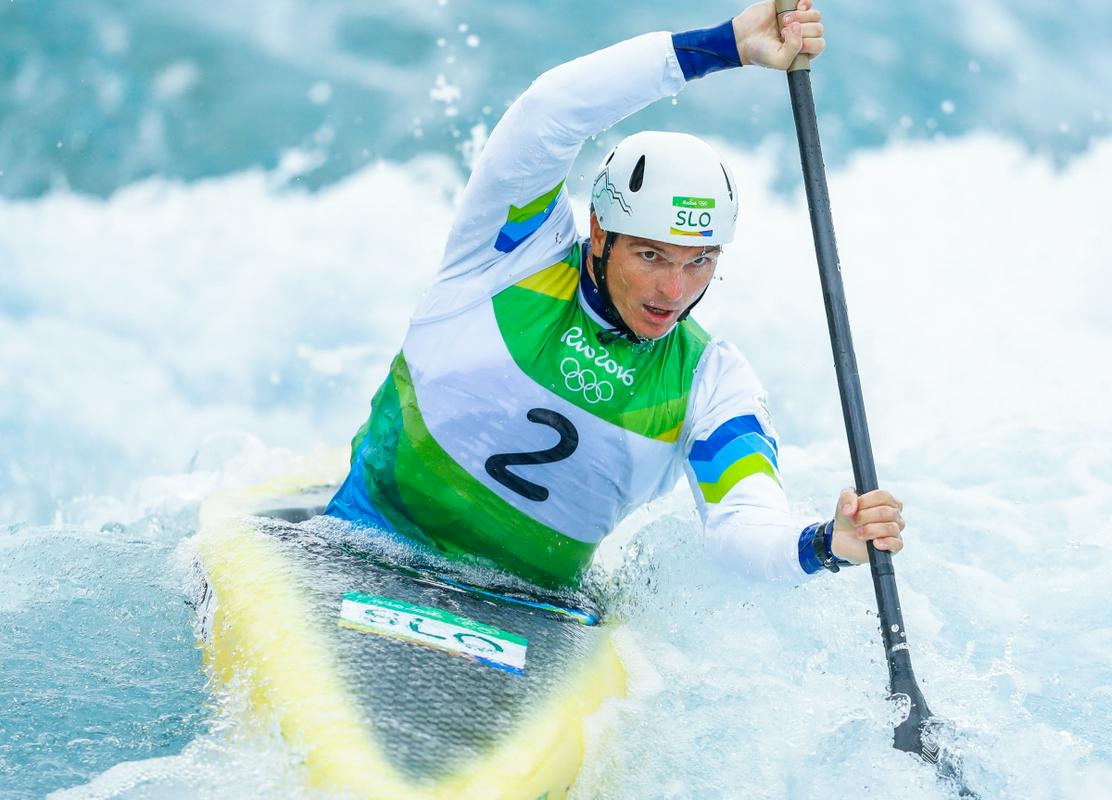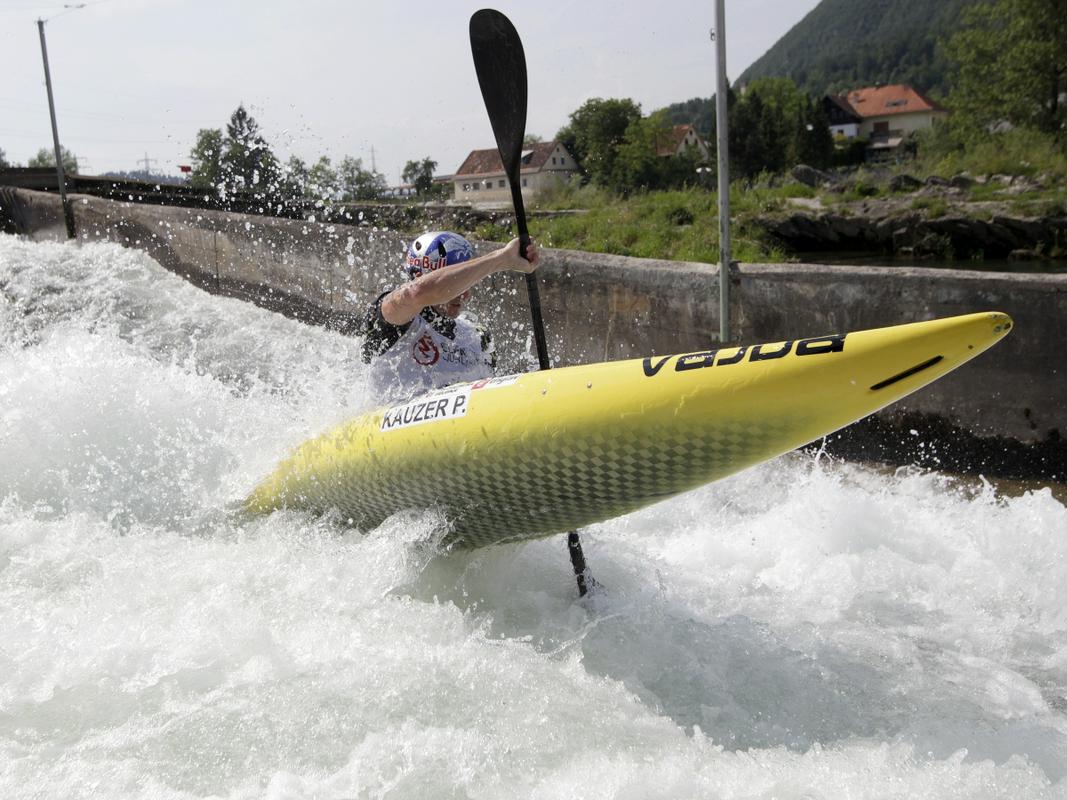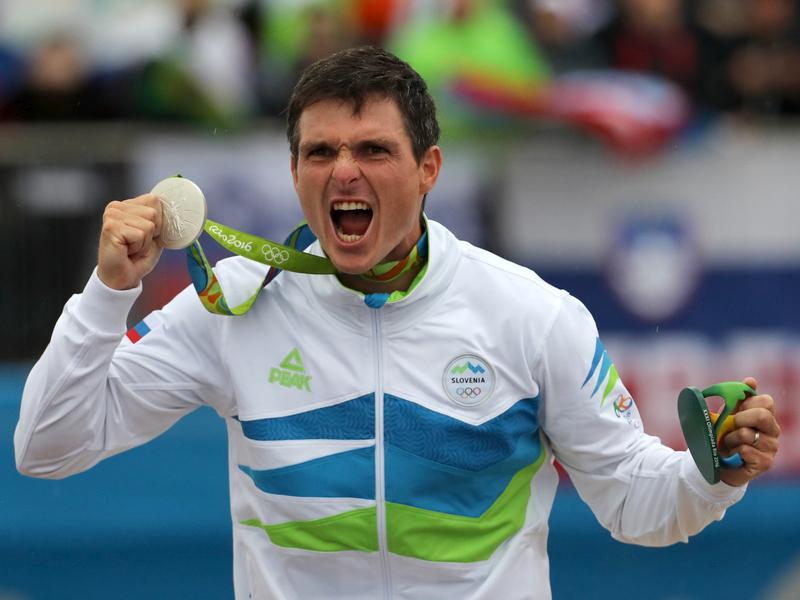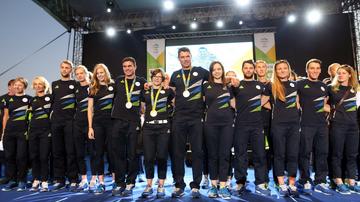

Slovenia is one of the most successful nations when it comes to winning medals at the Canoe Slalom European Championships, and this year representatives of the country will be strong favourites for the winners’ podium in front of the traditionally loud home fans. Indeed, Slovenia has won eight gold, seven silver and eight bronze medals at the European Championships since this competition was launched in 1996.

The thirty-three-year- old won his first medal at a major canoeing event during the 2005 European Championships that were held in Ljubljana - Tacen, and since then has firmly held onto his position as one of the best and most technically skilled athletes on the canoe slalom circuit.
We talked with him about Olympic success, and the Canoe Slalom European Championships in Slovenia.
You won a silver Olympic medal last year. Has anything changed in your life since then?
Life only changes as much as you want. I remained the same, although I had more commitments, but I spent the winter months in the United Arab Emirates and in Pau, France, for my winter training camp, so I was able to find some peace. Overall, though, everything has remained the same. I still enjoy it, which is the most important thing, and I am healthy. In a financial sense my situation has improved, although not as much as it probably would in some other countries. There are many promises, but in the end only a few are converted into money. However, I’m satisfied with the situation, and some things are still in discussion, so we’ll see what happens next.
You are used to standing on the winners’ podium, but was it any different at the Olympic Games?
It was the same as at the World Championships when I won. I could hardly wait to get up on the podium, and I was shaking up there for only the second time in my life. The first was in 2009, when I won the World Championships in Spain, and the second was in Rio. The podium was wet, and I joked with Joe and Jiři [Joe Clarke – Olympic Champion; Jiři Prskavec – bronze medallist] that jumping up there was perhaps not the wisest thing to do. Also, I almost broke my teeth on the medal when I was posing for the photo. The Olympic medal is much heavier than the others. When the president of the International Canoe Federation placed it around my neck it pulled me down a bit, because you’re not used to it. Medals are usually thin plate, but this one is quite heavy, half a kilogram. The feeling is different, and you appreciate it more.
The road to an Olympic medal is anything but easy. What does it take to win one?
No one can explain this. We all put everything into being the best, but very few succeed. You need to grow up as a sportsman, all the good and bad things you have experienced, not only in sports but in life in general, you need to take this into account and find the best in all of this. Winning an Olympic medal is not only the result of hard training and investment, what you had to renounce, because, and especially in our sport, everything needs to be in place at the right time. The water flow changes all the time, there are so many external influences, you need to have a bit of luck as well, so everything goes as it should. But in the end I really can’t explain what was different this time from the Olympic Games in London or Beijing.
You won your first medal at a senior level championship in 2005, at the European Championships in Ljubljana. Last year you won the only medal that was still missing from your collection – one from the Olympics. Do you feel that a cycle which started 12 years ago has now ended, and that a new one will start in Ljubljana with the European Championships?
Well, I’ll not repeat this 12-year cycle, that’s for sure, because I’ll be old in 12 years’ time and no longer part of competitive sport as an athlete. But I can take this as the beginning of a cycle until the next Olympic Games. I’ll try to qualify for the Tokyo Olympics, which will be my fourth. The we’ll see what the next three seasons bring. At the moment, I still feel confident and fit enough to compete against younger competitors, which I proved in the previous season. These younger paddlers that are coming up are a big motivation for me, because they do not let me fall asleep and I need to make progress all the time.
This year’s Canoe Slalom European Championships will be held in front of your home crowd. Is there more pressure competing at home compared to abroad?
At first there was more pressure, but now I’m used to it, and once you are used to competing in Tacen at the biggest competitions it’s a great feeling. I’ve always loved the first part of the course, when you have to sprint at flat water for a few seconds, and then you fall down the spillway drop and everything bursts into you immediately. The boat gets a lot of speed and the atmosphere at the venue is really crazy. The course is in the shape of an amphitheatre, so spectators can see it all from start to finish, and the sound the fans produce in this venue is amazing. Yes, the races in Ljubljana are really worth watching!
Would you say the atmosphere in Ljubljana is one of the best of all the venues?
Yes, the atmosphere is one of the best. Whether it’s a World Cup race, European or World Championships, this level of competition always attracts many people. The stands are full, which is not the case in some other countries, perhaps due to their relative size and the importance of the sport. Only Pau, France, can compare with Tacen. Pau is the home of Tony Estanguet, three times Olympic Champion, and it really is a canoeing city. There’s a similar kind of thing in La Seu d’Urgell, Spain, and Augsburg, Germany. These are classic races and venues – Tacen, Augsburg, La Seu d’Urgell – and they’re always fun.
What are your goals for the 2017 ECA Canoe Slalom European Championships in Ljubljana?
I want to improve on 12 years’ ago, and show this when it matters. I was second in 2005 in Ljubljana, so there is still room for improvement.
Nina Jelenc, Sinfo
Slovenia is one of the most successful nations when it comes to winning medals at the Canoe Slalom European Championships, and this year representatives of the country will be strong favourites for the winners’ podium in front of the traditionally loud home fans. Indeed, Slovenia has won eight gold, seven silver and eight bronze medals at the European Championships since this competition was launched in 1996.



























































